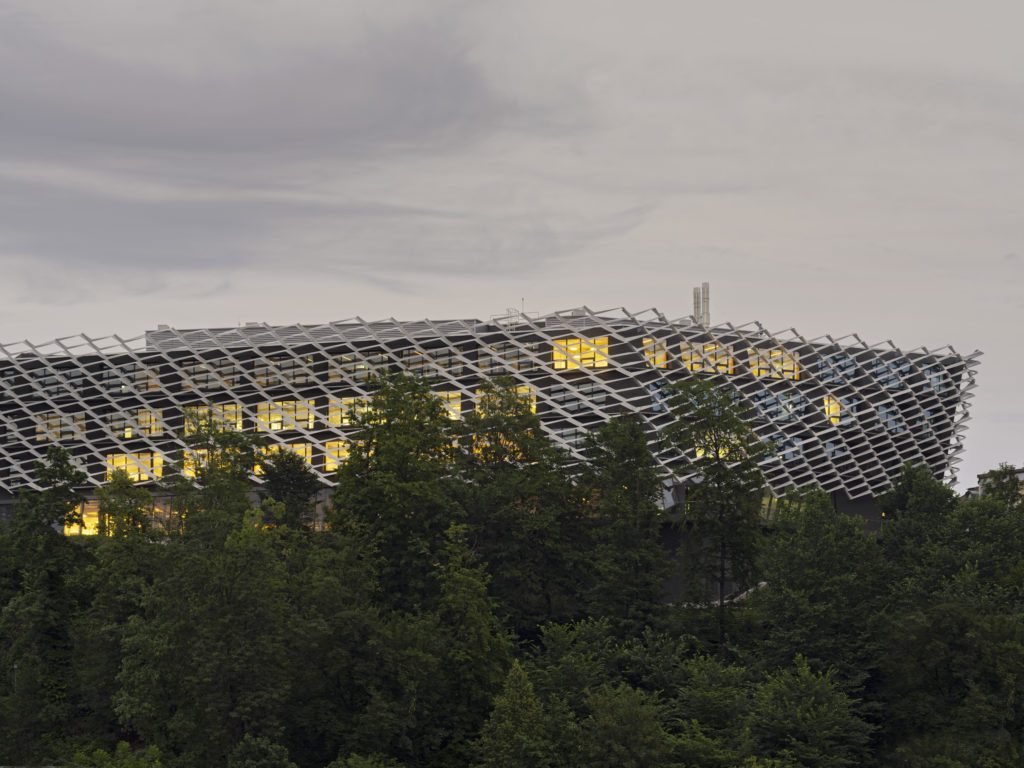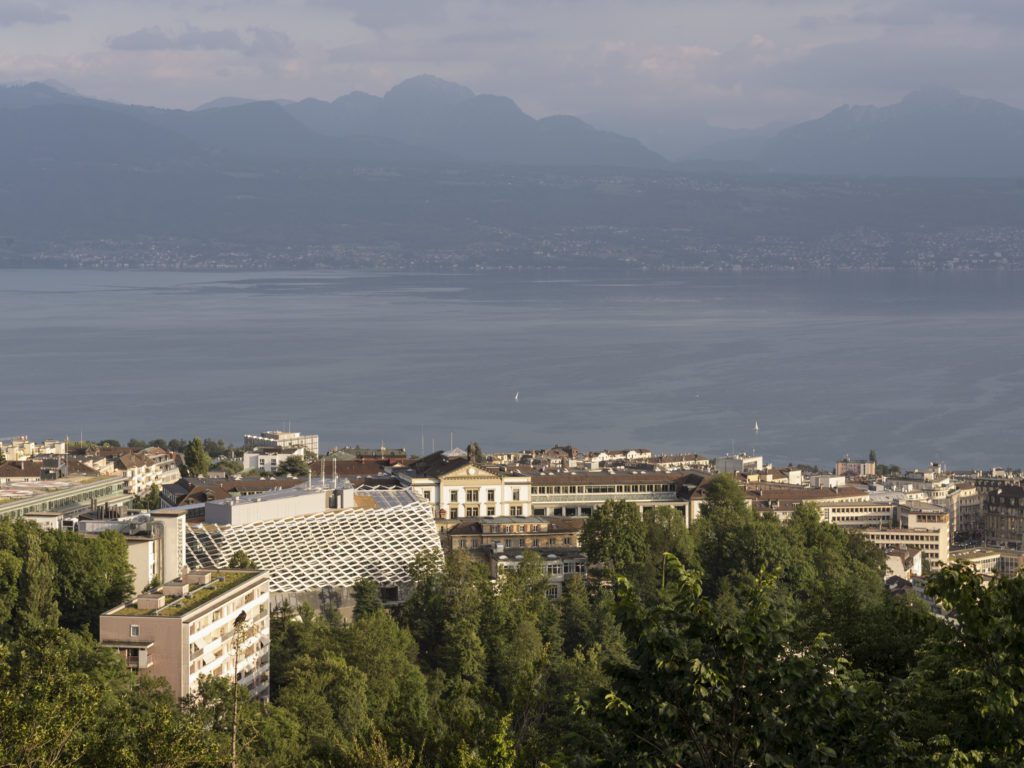Swiss Cancer Center Leman (SCCL)
Swiss Cancer Center Leman (SCCL)
A collaborative and integrated cancer research community
Since 2013, an integrated, multidisciplinary and collaborative oncology research network has been pursuing the development of new therapies and therapeutic strategies to improve cancer patient care in the Lemanic basin. The University of Lausanne (UNIL) and the CHUV (Lausanne University Hospital), the University of Geneva (UNIGE) and the HUG (Geneva university hospitals), joined the EPFL (Swiss Federal Institute of Technology Lausanne) to develop a partnership encompassing all their faculties and teams involved in cancer research and therapy.
The partnership became official in 2016, under the name “Swiss Cancer Center Leman” (SCCL). Initially coordinated by Professors George Coukos (UNIL-CHUV), Douglas Hanahan (EPFL) and Pierre-Yves Dietrich (HUG, UNIGE), the SCCL includes the participation of the ISREC Foundation and the Ludwig Institute for Cancer Research (LICR). It encompasses trans- and inter-disciplinary scientists, whose activities span basic, translational and clinical research. With the goal of implementing “precision oncology” for a regional population of approximately 2 million people, a clinical oncology network has integrated digitization and machine learning paradigms to support the therapeutic decisions clinicians must make for their patients. These efforts also support and extend clinical trials with retrospective and prospective analyses of patients’ genetic data, analyzing and predicting their responses to therapeutic treatments.

AGORA
An open architecture to foster collegial interactions
On October 3, 2018, the AGORA translational cancer research building was inaugurated as a flagship for research and therapeutic development in oncology. Built thanks to an 85 million CHF investment by the ISREC Foundation, the visionary building is strategically located on the CHUV campus and offers 5000 m2 of equipped research laboratory space and 2900 m2 of advanced facilities. These cutting-edge facilities include new platforms for bioengineering technology, multi-dimensional cell phenotyping, a mass spectrometry platform for tumor antigen detection, bioinformatics for “big data” analysis, an in vivo imaging platform (MRI, micro-CT, 2-photon microscopes, PET scans), and a state-of-the art facility for preclinical trials.
With its “open” architecture, which was designed to foster collegial interactions in artfully designed ‘bumping spaces’, the AGORA is home to approximately 300 cancer researchers, bioengineers, bioinformaticians and clinical researchers, organized into thematic neighborhoods over three laboratory floors. The building welcomes research groups from CHUV, EPFL, UNIL, the LICR, the Swiss Institute of Bioinformatics (SIB), the UNIGE and the HUG. The open, contiguous research lab spaces were designed to ensure the seamless integration of complementary expertise, and to facilitate interactions on a given floor as well as between floors, thanks to ample transparent staircases. This offers a physical proximity and continuity rarely found among laboratories of complementary expertise. It offers exceptional opportunities to launch innovative collaborations on relevant themes.
By integrating laboratories from 5 institutions, the AGORA aligns research programs in fundamental and translational tumor biology, creating synergies in the fields of tumor microenvironment, tumor metastasis, and immune engineering, while effectively incorporating clinical therapeutic oncology programs in immuno-oncology, targeted therapy of the tumor microenvironment, radiation therapy, and molecular imaging. With patient samples readily available for translational studies and precision diagnostics from the CHUV Pathology Department and the HUG in Geneva, there is an exceptional cancer research pipeline that expedites the development of new and more effective therapies for cancer patients.
The roster of research groups installed in the AGORA is impressive: Principal Investigators (PIs) include J. Joyce, O. Michielin, G. Coukos, M. Bassani, L. Kandalaft, D. Gfeller, M. Schottelius, J. Perentes, F. Herrera & J. Bourhis (UNIL-CHUV), D. Hanahan, M. De Palma, J. Huelsken and C. Merten (EPFL), and M. Pittet, D. Migliorini and P-Y. Dietrich (HUG/UNIGE). The LICR hi-TIDe (human integrated Tumor Immunology Discovery engine) group led by Prof. Coukos is also present, which offers many opportunities for collaborations that will translate basic research insights into the clinic. AGORA is also equipped with state-of-the-art innovative scientific platforms UNIL/FBM for in vivo imaging (IVIF), cell phenotyping (FCF, CIF, and MPF), animal facility (AIVC) and the Institute of Bioengineering (IBI) at EPFL that has established the BET laboratory specialized in organoids and microfluidic technologies. Finally, the Swiss Institute of Bioinformatics is advancing bioinformatics capabilities that are particularly important for cancer immune therapies. The Geneva groups are contributing to interregional clinical projects that extend the precision oncology network established under the auspices of the Swiss Personalized Health Network and strengthen the focus on glioblastoma, lung, HNSCC, colorectal etc.
The AGORA – a flagship of cooperative and innovative cancer research created to enable exciting developments and advances in translational and clinical cancer research
